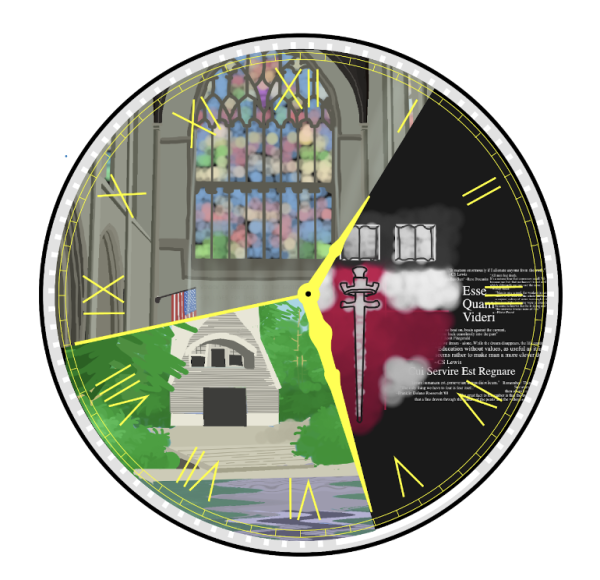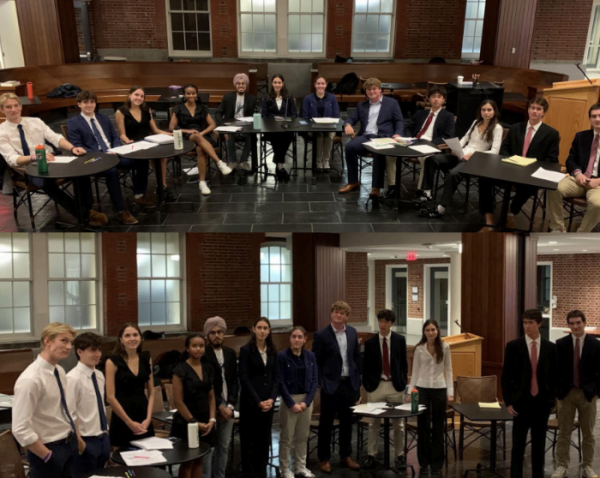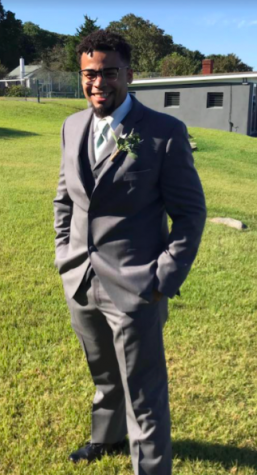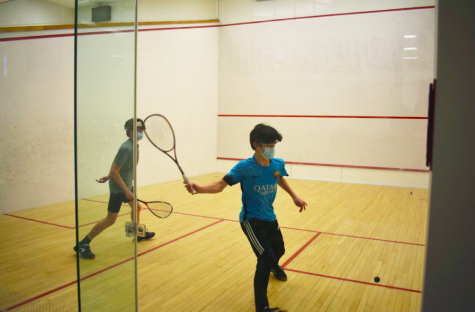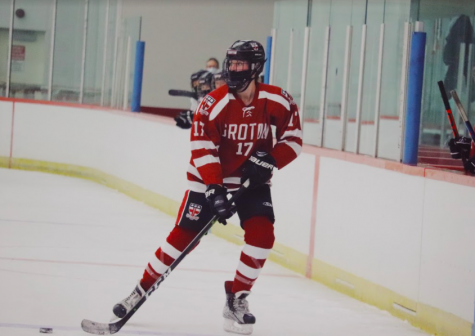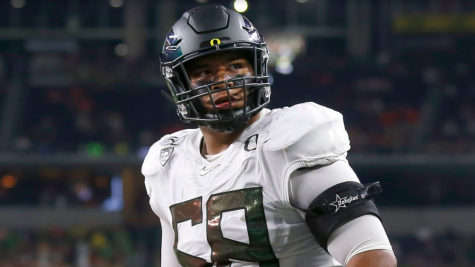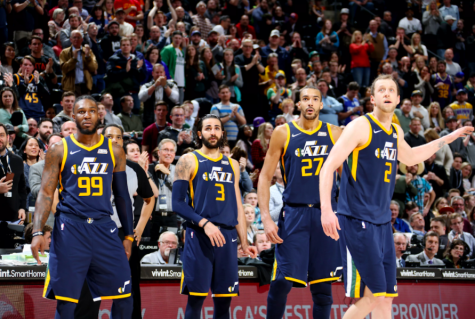“The Pandemic’s Frontlines” Circle Talk
The most recent Circle Talk united us on something we all have in common: the devastating ramifications of the Covid-19 pandemic. As the name, “The Pandemic’s Frontlines,” suggests, the talk featured questions posed by moderator and English teacher Peter Fry to four panelists with experience working on the frontlines of the coronavirus pandemic. The hour-long discourse provided several unique perspectives on the pandemic and its political, social, and medical consequences.
The panelists included Dr. Lindsay Baden, the Director of Clinical Research in the Division of Infectious Diseases at Brigham and Women’s hospital in Boston, Massachusetts and Director of the Boston Moderna Covid-19 vaccine clinical trials. Mr. Fry had met Dr. Baden as a participant in the vaccine trials, explaining that meeting him was a rare and special opportunity for him and Groton’s Speakers Committee. “You’d think that he wouldn’t work with just regular trial participants,” Mr. Fry explained, “He’d be off in some fancy office somewhere just overseeing it all.”
The second panelist, Dr. David Cheever ’05, is an emergency medicine physician working at Gallup Indian medical center in Gallup, New Mexico on the corner of the Navajo reservation.
Chekemma Fulmore-Townsend ’97 is the president and CEO of Philadelphia Youth Network, a non-profit working to promote academic achievement, economic opportunity, and personal success for under-resourced areas in Philadelphia, Pennsylvania.
The final panelist, Moira Sinnott ’00, intubated patients and provided anesthesia for all surgery in one of the hardest hit hospitals in the country, St. Barnabas in Bronx, New York.
Each panelist provided a different perspective on the pandemic. Sinnott and Baden explained the medical catastrophes produced by the coronavirus, while also touching upon societal and personal losses. “What the pandemic led to from what I’ve observed was the loneliness,” Dr. Baden explained. “The patients died alone.” The panelists then reinforced the incredible importance of rejecting the faulty conflation of politics and the pandemic, such as with the politicization of seemingly meaningless objects like masks. Instead, it was stressed that we must view the pandemic from the perspective of those experiencing loss or suffering most, recognizing the importance of compliance and unity with Covid-19 regulations rather than prioritizing personal comfort or convenience.
Another perspective the talk provided was that of Dr. Cheever, who discussed how Covid-19 has affected indigenous communities. He shared that the mortality rate among Native Americans is about ten times higher than that of white people, largely because of their living dynamics: big families living in single-room homes where self-isolation is impossible. Additionally, Fulmore-Townsend’s words on the effect of the pandemic on under-resourced communities served as a reminder to broaden our perspective on the pandemic’s global ramifications beyond the realms of our Groton bubble. “The privilege of being a private school kid has really been highlighted in this pandemic,” said Speakers Committee member Naomi-Erin Boateng ’22.
During the viewer-submitted questions portion of the Talk, one question in particular stuck out to panelists and listeners alike: “I know that there’s a lot of negativity that’s come from COVID; however, I was wondering if you had any views of something positive that has come from it.” The panelists were able to come to a consensus that the pandemic truly did have some positive impacts, despite the tragedies it has wreaked globally. They highlighted the newfound sense of unity and understanding developed within various communities, households, and businesses, as well as the technological advances that were made.
Throughout the Circle Talk, the perspectives served not only to broaden our understanding of the widespread calamities of the pandemic, but also to give the Groton community some hope about the future and the positive impacts of the pandemic. “The whole thing was really eye-opening,” said Jessica Lee ’24. “I think it gave me some necessary perspective on the whole pandemic and allowed me to better understand the tragedies of the pandemic that I hadn’t previously been exposed to.”


